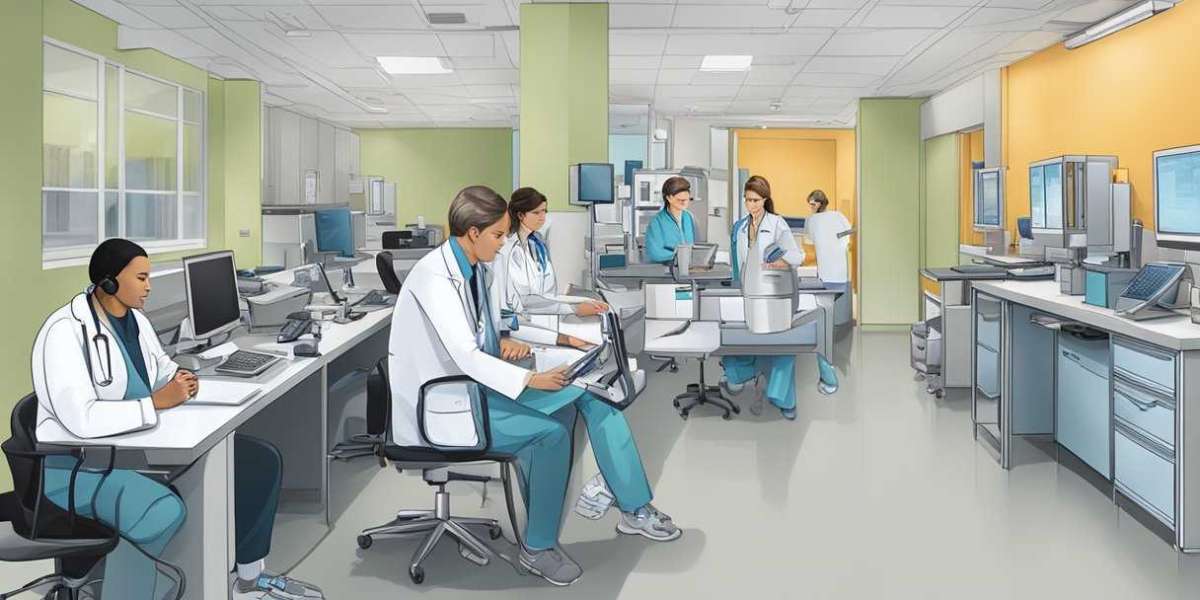South Dakota medical landscape offers a diverse range of providers dedicated to high-quality patient care. From urban centers like Sioux Falls to rural areas, healthcare professionals strive to meet the needs of various communities with expertise and compassion. Patients in the state benefit from a wide array of services, including cutting-edge treatments and reliable primary care.
The healthcare system in South Dakota is supported by numerous hospitals, clinics, and specialized care centers. Physicians, nurses, and other medical professionals are committed to ensuring that all patients have access to vital health services. This commitment is evident in the range of facilities and specialties available throughout the state.
South Dakota's medical providers face unique challenges and opportunities inherent to serving both urban and rural populations. Addressing the specific health needs of these diverse groups requires adaptability and deep community connections. By leveraging both modern technology and traditional healthcare practices, providers continue to enhance the quality of care across the state.
Overview of South Dakota Healthcare System
South Dakota's healthcare system is shaped by specific legislation and regulation, robust infrastructure, and a dedicated workforce. These elements come together to support the health needs of its residents.
Healthcare Legislation and Regulation
In South Dakota, healthcare regulations ensure patient safety and quality care across all medical facilities. Medicaid expansion has not been adopted, impacting the coverage rates within the state. The South Dakota Department of Health oversees public health initiatives, disease control, and licensing of healthcare professionals. Telemedicine regulations aim to expand access, particularly in rural areas. Public health programs, focusing on vaccination and disease prevention, are critical components of the state's regulatory framework. This structure is essential in shaping how healthcare services are delivered and maintained.
Medical Infrastructure and Resources
South Dakota's healthcare infrastructure includes a mix of hospitals, clinics, and long-term care facilities. Regional health systems, such as Sanford Health and Avera Health, play a significant role in service provision. The state is equipped with over 60 hospitals, ensuring healthcare accessibility even in rural areas. Additionally, mobile clinics and telehealth services are increasingly used to reach distant communities. Medical resources are continually updated to include the latest technology and methods for treatment. Despite its rural nature, South Dakota invests in healthcare facilities to accommodate both preventive and emergency services. This infrastructure supports a broad range of healthcare needs across the state.
Healthcare Workforce in South Dakota
The healthcare workforce in South Dakota consists of physicians, nurses, and support staff who serve urban and rural regions. Local training programs and medical schools, like the University of South Dakota's Sanford School of Medicine, contribute to developing healthcare professionals. Challenges remain due to workforce shortages, particularly in rural areas. Incentives and programs are available to attract practitioners to underserved areas. Community health workers also play vital roles in building connections between healthcare systems and residents. The commitment to workforce training and support remains crucial to maintaining South Dakota's healthcare standards.
Primary Care Providers
Primary care providers in South Dakota include specialists in family medicine, internal medicine, pediatrics, and obstetrics and gynecology. These professionals play a crucial role in maintaining the health and well-being of their communities through preventive care, diagnosis, and treatment.
Family Medicine
Family medicine practitioners in South Dakota offer comprehensive healthcare for individuals of all ages. They address various medical needs, including preventative care, chronic disease management, and minor surgical procedures. They serve as the first point of contact for patients seeking medical care and often manage common health issues such as hypertension, diabetes, asthma, and more.
Their broad expertise makes them indispensable in rural areas where access to specialized care may be limited. Family physicians often build long-term relationships with patients, allowing them to deliver personalized care that considers family history and lifestyle factors.
Internal Medicine
Internal medicine specialists focus on adult patients, dealing with prevention, diagnosis, and management of diseases. They handle complex medical conditions and provide specialized care for chronic illnesses. In South Dakota, internists often work in hospital settings, clinics, and private practices.
Patients frequently seek their expertise for managing conditions like cardiovascular diseases, diabetes, and gastrointestinal disorders. These providers use evidence-based practices and advanced diagnostic techniques to guide treatment plans. Internists coordinate with other specialists to ensure holistic care, emphasizing a comprehensive understanding of each patient’s unique health needs.
Pediatrics
Pediatricians cater to the health needs of infants, children, and adolescents. In South Dakota, they focus on developmental milestones, immunizations, and treating common childhood illnesses. Their work includes monitoring growth and addressing behavioral issues, allergies, and infectious diseases.
They guide parents in preventive health practices and early intervention strategies, promoting long-term well-being. Collaboration with schools and community resources is common, as pediatricians aim to create supportive environments for their young patients.
Obstetrics and Gynecology
Obstetricians and gynecologists in South Dakota specialize in women's reproductive health, childbirth, and disorders related to the female reproductive system. They offer services such as prenatal care, family planning, and menopause management.
OB-GYNs provide both surgical and non-surgical treatments and are instrumental in ensuring healthy pregnancies and deliveries. Preventive care, such as cancer screenings and sexual health education, forms a large part of their practice. They work closely with other healthcare professionals to provide comprehensive care for women across various stages of life.
Specialty Care Services
South Dakota offers a range of specialty care services, ensuring comprehensive medical support in various fields. Key areas include heart health, musculoskeletal treatment, cancer care, and brain health. These services focus on advanced medical procedures and expert care.
Cardiology
South Dakota's cardiology services emphasize heart health and preventive care. Providers offer diagnostic tests such as EKGs, stress tests, and ultrasounds to monitor heart function. Treatment options for common conditions like heart disease, hypertension, and arrhythmias include medication management and lifestyle counseling.
For advanced conditions, interventional cardiologists perform procedures like angioplasty and stent placement. Additionally, there are experienced surgeons for complex heart surgeries. Rehabilitation services, including cardiac rehab programs, assist in recovery and promote long-term heart health.
Orthopedics
Orthopedic care in South Dakota covers joint, bone, and muscle health with a focus on both surgical and non-surgical treatments. Patients with conditions like arthritis, fractures, and sports injuries benefit from personalized care plans. Joint replacement surgeries for hips and knees are common, aiding mobility restoration.
Specialists often utilize minimally invasive techniques to enhance recovery times. Physical therapy is a crucial component, helping patients regain strength and flexibility. Collaboration with sports medicine experts supports athletes with tailored injury prevention and recovery programs.
Oncology
Oncology providers deliver comprehensive cancer care, from diagnosis to treatment and follow-up. South Dakota has facilities equipped with advanced imaging techniques like MRI, CT, and PET scans for early detection. Treatment options include chemotherapy, radiation therapy, and surgical interventions, providing personalized approaches based on tumor type and patient needs.
Support services are integral, offering nutritional guidance, counseling, and support groups for patients and families. Participation in clinical trials may be available, ensuring access to cutting-edge therapies and innovations in cancer treatment.
Neurology
Neurology services in South Dakota focus on the diagnosis and management of neurological disorders. Common conditions treated include epilepsy, Parkinson's disease, multiple sclerosis, and stroke. Neurologists utilize advanced diagnostic tools such as EEG, MRI, and nerve conduction studies to assess conditions accurately.
Care may involve medication management, surgical interventions, and rehabilitation plans. Specialists may collaborate with speech, occupational, and physical therapists for comprehensive care. Emphasis is placed on patient education and lifestyle adjustments to manage symptoms effectively and improve quality of life.
Rural Health Challenges and Solutions
In South Dakota, rural areas face unique health challenges due to geographic isolation and limited resources. Enhanced telemedicine, strategic medical outreach, and targeted health initiative grants are key strategies to address these concerns.
Telemedicine Advancements
Telemedicine has transformed healthcare access in South Dakota's rural communities. By offering virtual consultations, patients can connect with specialists without extensive travel. This technology bridges the gap in service availability, particularly where specialists are scarce.
High-speed internet access remains a challenge, but ongoing infrastructure improvements are essential. Equipment and software updates are prioritized, ensuring reliability and user-friendliness. Through telemedicine, rural medical providers can monitor chronic conditions more effectively, reducing emergency visits and improving patient outcomes.
Medical Outreach Programs
Medical outreach programs play a crucial role in addressing healthcare shortages in rural areas. Mobile clinic units frequently travel to underserved regions, offering essential services such as immunizations, screenings, and general health check-ups.
Training local healthcare workers ensures community-specific expertise and trust. These programs often collaborate with state health departments and local organizations, expanding their reach. By integrating cultural sensitivity into their operations, outreach programs increase community engagement and improve health literacy.
Health Initiative Grants
Health initiative grants provide financial support for innovative rural healthcare solutions. These grants are instrumental in funding projects that improve healthcare infrastructure, enhance service delivery, and promote preventive care.
Programs may use grants to acquire advanced medical equipment or invest in health worker training. By focusing on specific community needs, grants enable tailored health solutions. Grant-funded collaboration between healthcare institutions and local agencies fosters a sustainable health ecosystem in rural South Dakota.








